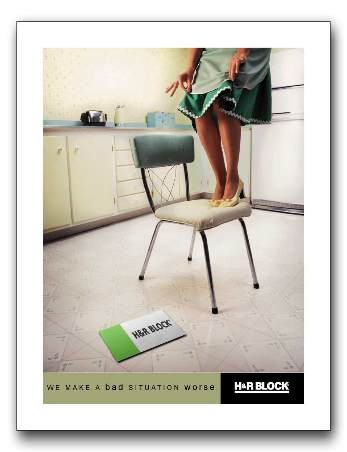How Private Are Your Tax Records?
 In “How private are your tax records? You’ll be surprised,” [link to http://redtape.msnbc.com/2006/03/on_an_outrage_s.html no longer works] Bob Sullivan illustrates why the “opt-in/opt-out” way of discussing privacy is so destructive:
In “How private are your tax records? You’ll be surprised,” [link to http://redtape.msnbc.com/2006/03/on_an_outrage_s.html no longer works] Bob Sullivan illustrates why the “opt-in/opt-out” way of discussing privacy is so destructive:
Any information you give to a company that helps you prepare your taxes can be sold to anyone else. Only a single signature on a permission slip stands between you and the complete loss of your privacy. While that seems shocking -– aren’t tax records sacred? — this isn’t new. The IRS says it’s a long-standing practice.
Worse yet, the government and the nation’s tax preparers are steering you to use one of these third-party tax preparation companies. Anyone who wishes to file a return electronically — the only rational way to file in the 21st century — must use a private company to do so. And that private company has the right to share everything it knows about you.
“We Make A Bad Situation Worse” [http://www.mlcsmith.com/rants/block/] graphic from mlcsmith [http://www.mlcsmith.com/index.html].
Only tangentially related to the question at hand, but I was rereading this article over the weekend, and I haven’t seen it mentioned in this esteemed forum before:
Do Defaults Save Lives?
Eric J. Johnson* and Daniel Goldstein
Science 21 November 2003:
Vol. 302. no. 5649, pp. 1338 – 1339
http://www.sciencemag.org/cgi/content/full/302/5649/1338?ijkey=8v2ZJ086bxwlE&keytype=ref&siteid=sci#affiliation
Summary: Enrollment in organ donation programs is overwhelmingly predicted by the default opt-in or opt-out framing of the question. Empirically, the lowest participation rates of an opt-out regime in Europe (85%, Sweden) is more than THREE TIMES the highest rate of participation in an opt-in regime (27.5%, Netherlands).
Even when the matter has potentially large and evocative consequences for personal morals and public good, the cognitive efficiency of the individual can determine a huge part of expected individual behavior. This has made me very skeptica about most common framings of “informed consent”.
That’s a fascinating study. Hal Varian studies this as well, calling it “the power of the default.”
I suspect there’s also a conflict-avoidance issue in face to face opt-in/opt-out forms, where people don’t want to decline to sign papers presented. I’d be fascinated to know if this is being consciously exploited.